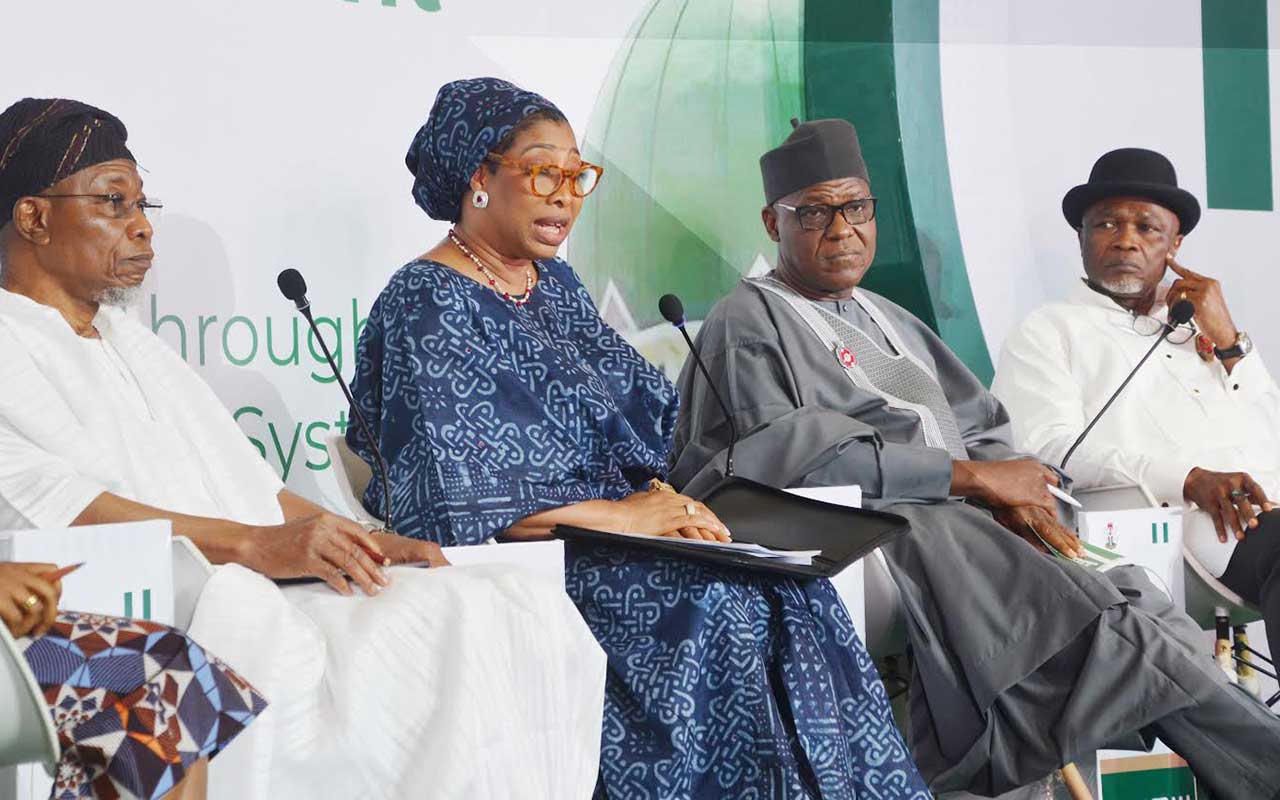
• Bugaje, other stakeholders advocate home-grown system
Former governor of Osun State, Rauf Aregbesola, has emphatically backed calls for Nigeria to ditch the presidential system of government and return to the parliamentary system.
At a National Dialogue on Home-grown Parliamentary System, yesterday, in Abuja, the immediate past Minister of Interior opposed the executive system of government being practised in Nigeria, describing the parliamentary system as best suited for a country like Nigeria.
But League of National Democrats (LND) warned that a return to the parliamentary system would exacerbate the country’s ethnic divisions and threaten national unity.
Taking a middle course, stakeholders said adopting the United States presidential system only increased poverty and insecurity in the country, doing more harm than good, particularly in the last 25 years of the Fourth Republic.
Aregbesola said, “Believing that an individual, no matter how good, could have the capacity to govern 220 million people all alone without checks, is a huge joke. So, by that consideration alone, I am opposed to an executive system of government.
“I believe the collective arrangement, which the parliamentary system guarantees, is best for a nation like Nigeria if indeed we are committed to advancing the interest of the large population and mass of our people.”
Last February, a group of House of Representatives members sponsored a bill seeking an amendment to the 1999 Constitution to transition from the presidential to a parliamentary system of government.
According to the group of about 60 lawmakers, the transition has become necessary to reduce the cost of government in the face of dwindling revenue.
‘The Bills Proposing Constitutional Alterations for a Transition to Parliamentary System of Government’ was sponsored by the House Minority Leader, Kingsley Chinda, and 59 others.
CHAIRMAN of LND, former Governor Ibrahim Shekarau Kano State, admonished in a position paper delivered at the Dialogue.
The remarks, presented before a gathering of lawmakers and political stakeholders, were a staunch defence of Nigeria’s presidential system, which he argued, is better suited to managing the country’s deep ethnic, religious and regional diversity.
Shekarau noted that Nigeria faced significant challenges in fostering national integration since the 1914 Amalgamation, observing that the country’s complex ethnic and religious landscape led to tensions, often manifesting in political rivalries.
He warned that the parliamentary system, adopted at Independence, failed to address the divisions effectively, contributing instead to greater factionalism.
“The British parliamentary system we adopted at Independence encouraged localism, where members of parliament were directly accountable to their constituencies. As a result, political leaders were more concerned with the interests of their specific ethnic or regional groups, often at the expense of national cohesion,” Shekarau said.
He cited the First Republic, where the system’s inability to foster unity contributed to the political instability that ultimately led to the country’s first military coup d’état.
OTHER stakeholders called for circumspection in considering the parliamentary method.
They stated this at a national discourse on a home-grown parliamentary system of government organised by the Home-Grown Parliamentary System Support Group (PSSG).
Guest Speaker at the event, Dr Usman Bugaje, said the last 25 years of the presidential democracy had not given Nigerians what they were expecting from their governments.
According to the former presidential aide, three major things have happened in the last 25 years we were using the American model of democracy in Nigeria, including extreme poverty, security and mind-boggling corruption.
“Look at the statistics, you see how poverty has been deepening in the last 25 years. Look at the escalating insecurity. I mean, 1999 was fairly peaceful despite the transition from the military. But look at what has happened 10 years later, another 10 years later, where we are now? New bandits spring up, even as we still contending with the ones on the ground. Corruption is mind-boggling.
“These are some of the things we prefer to sweep under the carpet, but they will keep coming up because they are a fundamental breach of democratic practices and they cumulatively undermine the political system and create the crisis, the kind which we will not be able to recover from,” he said.
While blaming lawmakers for Nigeria’s woes, the former lawmaker lamented that the parliaments were not playing the role they should.
On his preferred system of government, he said: “I like the idea of the homegrown effort. This is a very key word because if you borrow a system that has been nurtured in an entirely different history, social, and cultural environment, it will not work for you.
“You are supposed to work on your system. If we keep borrowing, we will become enslaved by ideas and systems that do not quite fit and solve our problems.”
Similarly, a former Vice Chancellor of Ahmadu Bello University (ABU), Zaria, Prof Ango Abdullahi, said the country’s situation got worse under the presidential system in the past 24 years than the four-year stint of the parliamentary system of government, shortly after Independence.
The Convener of Northern Elders Forum (NEF), who chaired the occasion, said Nigeria’s adoption of the presidential system was a mistake.
On his part, the leader of the PSSG, Abdussamad Dasuki (PDP, Sokoto), said the presidential system in the last 25 years showed itself as not the system “we desire, nor the one our founding fathers envisaged.”



